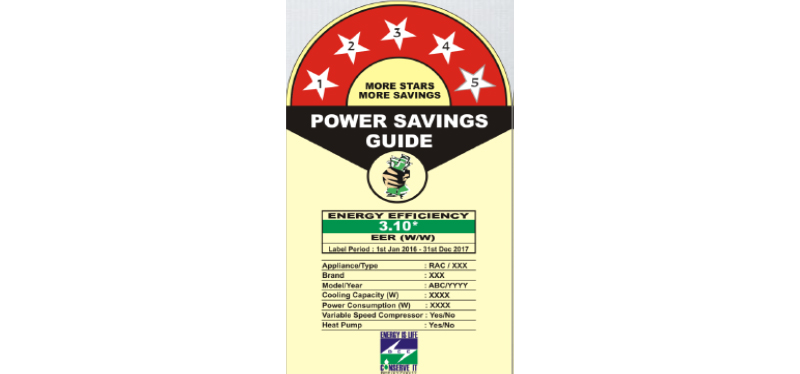Environmentalists said that inaccurate and confusing Bureau of Energy Efficiency (BEE) ratings defeat the purpose of power-saving.
Rachel, a customer at an electronic appliances store wanted to buy an LED TV. She wanted to save electricity and is aware about energy saving so she checked for ratings. She came across two LED TVs of the same size but different brands. Both the TVs consumed the same amount of energy annually. But they had different ratings. The Bureau of Energy Efficiency (BEE) ratings had left her confused.
Both LED TVs consume 90 kWh (Kilowatt hour) annually, but one LED TV was rated 4.5 stars whereas the other was rated at 3 stars,” Rachel said. She said that the higher-rated LED TV was cheaper and of poor quality, whereas the low-rated LED TV was more expensive and of better quality. Such a mismatch confused her.

Similarly, inconsistent BEE ratings have been confusing and misleading for electronic products customers.
“In products like refrigerators, a high-rated refrigerator costs about Rs. 30,000 more than a non-rated refrigerator,” said Aajaz, a salesman at Reliance Digital store at Rajarajeshwari Nagar.
He added that all customers cannot afford high-rated refrigerators because they are expensive.
These ratings are issued by Bureau of Energy Efficiency (BEE), an Indian Government agency under the Ministry of Power. BEE rating is the labeling certification – from one star to five stars –regarding power consumption for household electronic appliances.
A higher rating for a product means higher the energy efficiency of the product.
Avinash CM, Assistant Professor in Electrical Engineering, Rajarajeshwari Engineering College said that the BEE ratings are done according to various standards. The BEE decides the annual energy consumption of electronic appliances on the type of device, the quality of material used and the overall efficiency.
“Many products are manufactured in China and other foreign countries, which affects the quality and the rating of the product, and the ratings might not be accurate,” headded.
The Brand Liaison provides manufacturers with BEE registration and certification services. Shubham, a Sales and Marketing Manager at the entity said that the manufacturers are issued BEE ratings for their electronic appliances with 90 percent accuracy. “The BEE has different standards for different electronics. In some products the quality is valued less than the type of part used, for example the type of conductor used.”
Umesh, another salesman at the store said that many consumers buy electronic appliances relying on the BEE ratings apart from affordability, brand, maintenance service and warranty.
However, the BEE ratings in products like washing machines are confusing and hence, they pick brands over ratings, he explained.
Most washing machines are rated with five stars, albeit with differences in annual energy consumption units. Aajaz said that the quality, technology, brand and the energy consumption of different models and different sizes are very different for rating them all the same.
The BEE ratings have a disclaimer stating that the energy consumption of the appliance actually depends on how the equipment is used. This further makes the ratings less reliable.
Dr. Ebby Darney, Professor in Electrical Engineering, Rajarajeshwari Engineering College said that the BEE ratings of some electronic appliances are influenced and their ratings are not very reliable.
Vijay Nishanth, an environmentalist and founder of Vruksha said that the government authorities and consumer courts should ensure the accuracy of BEE ratings. “The inaccurate and confusing ratings defeat the purpose of energy saving which is important to save the environment. The consumers should not only see the ratings but also read the labels, compare the quality and the amount of power the appliance will consume.”



